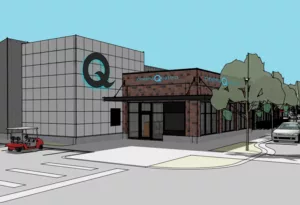
'Sacred feminine' leadership style embraced
Approach has more to do with qualities, less to do with gender

For much of my career, I carried a quiet tension. I knew I was a leader—called to serve, to guide, to make hard decisions—but I often wondered whether the way I naturally engaged was enough. I gravitate toward empathy, reflection, and connection. In my generation, the world told me those traditionally feminine qualities did not make for the best leaders, especially in business. Consequently, I cultivated and practiced wearing a leadership persona that wasn’t authentic but fit into what the business world around me expected and valued.
But the authentic me kept calling, and as I matured and cared a little less about what I perceived to be expected, I leaned into and worked on my more authentic self. I started to listen more than I spoke. I observed how people were feeling, even when it went unspoken. And in certain rooms, that made me feel like I didn’t quite belong.
Over time, especially within health care, I’ve come to understand those qualities are not shortcomings, but rather strengths—gifts even. I’ve come to believe they are not only welcome in leadership, but they are also deeply needed.
As a mission-driven health care organization, Providence calls us to express God’s healing love through the ministry of Jesus. We exist to serve all, especially those who are poor and vulnerable. Our values of compassion, dignity, justice, excellence, and integrity aren't simply statements on a website. They are the foundation of how we live and lead. They challenge us to lead not from ego or position, but from a place of deep humanity.
In that calling, I’ve found permission to embrace the sacred feminine in leadership.
The sacred feminine is not about gender. It’s a way of being that values listening, collaboration, emotional intelligence, humility, and intuition. It’s the willingness to hold complexity, to create space for healing and transformation, and to move with courage that doesn't need to dominate to be strong.
Health care, at its core, is a human enterprise. It is about caring for others when they are at their most vulnerable, most afraid, most in need of dignity and compassion. Leading in this space requires us to be in touch with our own humanity too. We can’t care for others well if we’re disconnected from ourselves.
That’s what this moment in health care is asking of us.
There is no denying the uncertainty we face. The systems we have relied on are shifting. The pressure is real. Resources are tighter. Expectations are higher. And yet, our teams, our patients, and our communities still look for us to lead—not with rigid certainty, but with grounded presence. With clarity yes, but also with kindness. With the wisdom to say, “we can’t keep doing things the old way,” and the fierce creativity to imagine the new.
In moments like these, the sacred feminine offers a path forward. It invites us to lead in ways that are deeply relational and spiritually grounded. It calls us to build trust rather than control and to see leadership not as individual achievement, but as collective care.
This isn’t about softening the work. It’s about deepening the impact.
The truth is, many of the leadership qualities we need now, especially in health care, are those that have long been dismissed as less powerful because they didn’t fit traditional models. But when we look around at the organizations and leaders thriving in this complexity, we see something different. We see teams that are emotionally intelligent. Leaders who make space for dialogue. Cultures where people feel safe enough to speak up and to grow.
That doesn’t happen by accident. It happens when we lead from the heart, with integrity, humility, and a willingness to stay present to the human experience in all its complexity.
The future of health care will not be built by ego or hierarchy. It will be shaped by those who are willing to lead differently, by reclaiming the fullness of who we are, and by integrating strength and softness, vision and vulnerability, excellence and empathy. It will be shaped by those who know that healing is not just what we deliver, it’s what we model. It’s how we show up. It’s the posture we take every day with those we serve and those we lead.
This is not easy work. But it is sacred work. And when we lead from truth, we don’t just transform our systems – we become part of the healing ourselves.Carmen Green is the chief operating officer for Providence Medical Group – Inland Northwest Washington.




